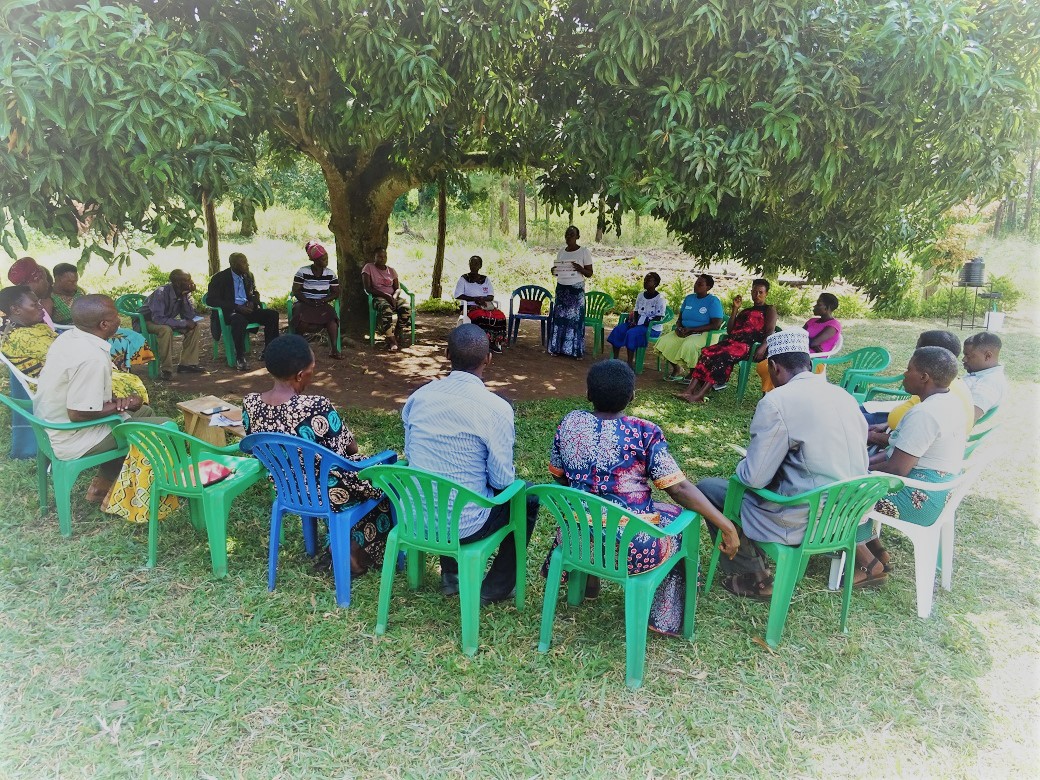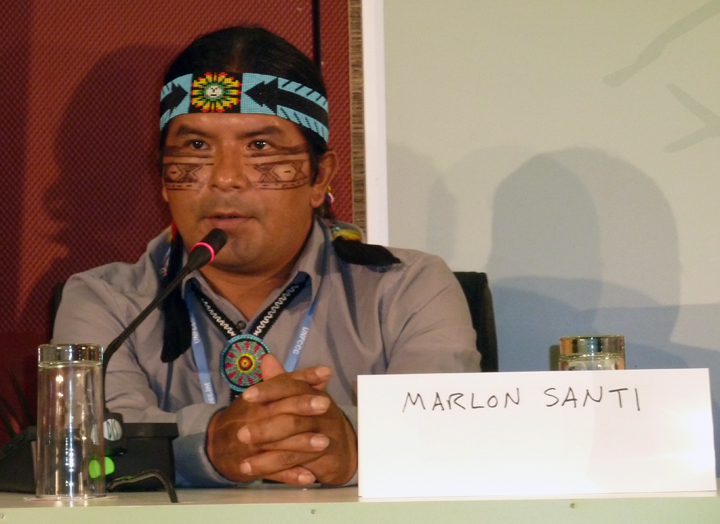Indigenous Leaders Alert the UNFCCC and the World to the Imminent Threat that REDD Poses to their Territories and Livelihoods
Durban, South Africa (IPCCA). As the UNFCCC COP 17 opens in Durban, South Africa, a gathering of indigenous leaders from around the world discussing biocultural protocols and REDD warns the UNFCCC and the international community of the grave danger that REDD and market based solutions to climate change mitigation pose to their cultures, territories and livelihoods.
“For my people, the forest is sacred, it is life in all its essence, we can protect Pachamama only if this is respected. REDD and other market mechanisms have turned our relationship with forests into a business. As we are targeted, this is not only a new form of climate racism but also represents a false solution which undermines the climate regime” said Marlon Santi, a leader of the Sarayaku Quichua community of Ecuador.
The IPCCA leaders discussed their experiences with using a biocultural approach to assessing climate change impacts as well as the impacts on their livelihoods and the ecosystems found in their territories in order to develop appropriate responses. In forest ecosystems, impacts of REDD and market based mechanisms were analysed from diverse local contexts such as the Indian Adivasi and the Sapara Nationality of Ecuador to build a common understanding:
- They commodify life and undermine holistic community values and governance
- They block community access to forests and customary use
- They lead to establishment of monoculture tree plantations which promote land grabbing
- They are portrayed as vehicles for strengthening land tenure rights but in fact are used to weaken them
- They are used to justify continued emissions in the North and thus are hypocritical false solutions to the climate crisis
“The IPCCA is an example of how indigenous communities are undertaking climate change assessments on their own terms, and are illustrating the danger of market based mitigation mechanisms. Our knowledge systems and our distinctive spiritual relationship to our territories can contribute to a deeper, localized and holistic understanding of what we and the world is facing” said Alejandro Argumedo, coordinator of the IPCCA. “Solutions that will indeed reduce emissions and ensure local livelihoods must come from including such local analysis.” The IPCCA network is building alliances with organizations such as the Global Forest Coallition to bring much needed indigenous and local voices to forums as the UNFCCC COP 17.
Through the analysis undertaken in the IPCCA workshop, the realization that many indigenous peoples have either been manipulated into accepting REDD like schemes, or are facing precarious national situations that REDD becomes an option for their survival, that it is necessary to ensure that all REDD actors fully respect the rights of indigenous peoples, in particular, to their right to Free, Prior and Informed Consent. However, they also caution that adherence to these principles does not solve the negative impacts, so they call upon all indigenous peoples to maintain their integrity and demand to be respected (Click here for full declaration).
Contact:
Alejandro Argumedo,
International Coordinator
Indigenous Peoples’ Biocultural Climate Change Assessment (IPCCA) initiative
Asociación ANDES
Tel: +51 84 245021
In Durban
Jose Proaño
Land is life
Telf +27 (0)793370519
infoamazonia@me.com











